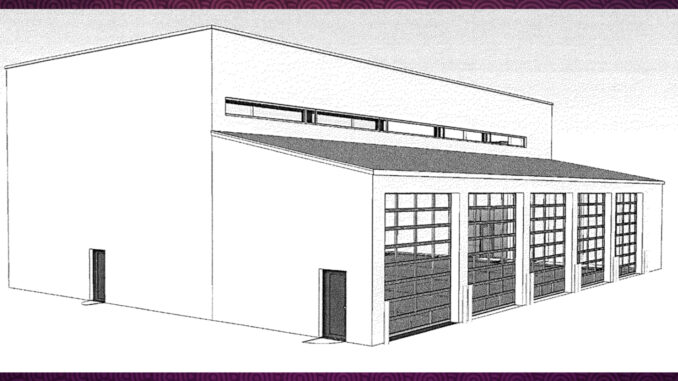
TOWNSHIP OF WASHINGTON—Township Council members urged the mayor Sept. 19 to press its architect to look further into using a steel building to house the DPW, including one with second-floor office space or one for storage of DPW vehicles and equipment — in hopes of lowering the new DPW facility’s price tag.
Township architect Arcari Iovino previously estimated a new DPW facility to be built at town hall at $4.5 million, though some council members said that going up in height or adding a steel structure or storage building might reduce costs as well as provide needed storage.
Upon questioning by resident Bob Stickel, Mayor Peter Calamari said that the township’s architect said steel buildings are a great option to look at but generally not conducive to second floors for office space. He said the architect cited a reduced lifespan for steel buildings of 25–30 years, versus brick and mortar building life spans of 50–55 years.
Stickel said he had been in steel buildings before, including the second floor of the National Grid Building in Syracuse, N.Y. He said even if the steel structure only lasts 35–40 years and cost half the price, the town could put up another one.
Council President Desserie Morgan said she agreed that the architect should pursue a steel building, even if just to cover or house the DPW equipment, citing it as “a less expensive route.”
Council Vice President Stacey Feeney said that there were other DPWs in the area that have steel buildings with a second story, and suggested the architect reach out to them. Calamari said he would reach out to the Pascack Valley Mayors’ Association and ask who might be using a steel structure.
Councilman Steven Cascio said investigating the steel buildings was a good idea and that they also last a long time.
Councilman Tom Sears said that the new DPW facilities could be part brick and mortar and part steel structure. He said the steel building could save costs over a traditional building.
Feeney said that the residents are “very happy” with the DPW and that the council must provide them with a quality building to maintain local services.
“We have to be fiscally responsible and do it as smart as we can,” she added.
DPW equipment at former swim club
On a related matter, Calamari said that seasonal DPW equipment and vehicles stored at the 6.1-acre former Washington Township Swim and Recreation Club would not “come and go every week” but only move at the end of October for leaf season and later for winter weather needs.
Calamari told residents previously that DPW seasonal equipment and vehicles would be stored “indefinitely” at the swim club, which the township acquired in late April for $750,000. The township engineer has undertaken a study on town-wide recreational facilities, including the club, to determine their best future recreational uses.
Recently, the township was listed as in line for a $438,750 county open space grant to reimburse the swim club purchase. Grants will be awarded officially in December, following a public hearing Oct. 19. The council’s next regular meeting is Oct. 3.
